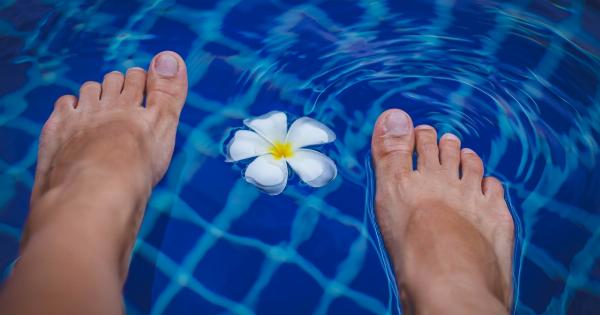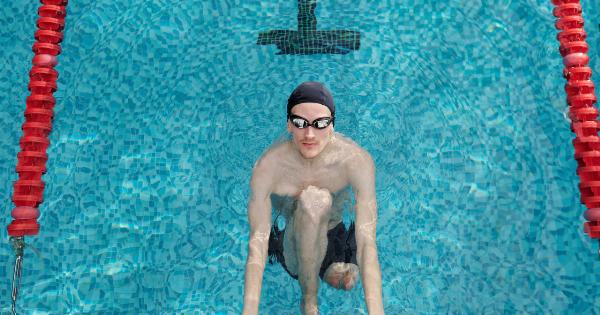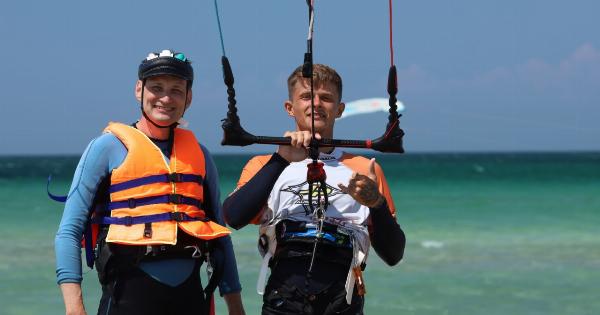Swimming is a popular activity that offers a wide range of physical and mental benefits. From cardiovascular health to stress relief, swimming is often considered a fantastic exercise for people of all ages.
However, there are certain precautions that should be taken into consideration before diving into the water. One such precaution is ensuring that you have eaten at least three hours before swimming. In this article, we will explore the reasons why swimming on an empty stomach may not be the ideal choice.
Potential Risks of Swimming on an Empty Stomach
1. Low Energy Levels:.
Swimming is a physically demanding activity that requires a significant amount of energy. When you swim on an empty stomach, your energy levels may be significantly lower compared to when you have had a nutritious meal.
This can lead to decreased performance and stamina in the water, making it more difficult to swim efficiently.
2. Hypoglycemia:.
Swimming on an empty stomach can pose a risk of hypoglycemia, especially for individuals with diabetes or those prone to low blood sugar levels.
When there are insufficient glucose reserves in the body, swimming can cause blood sugar levels to drop rapidly, leading to dizziness, fainting, or even loss of consciousness.
3. Muscle Cramps:.
When you swim, your muscles work continuously to propel your body through the water. Without proper nutrition, your muscles may lack the necessary electrolytes and nutrients to function optimally.
This can increase the likelihood of experiencing muscle cramps, which can be painful and potentially dangerous, especially if they occur in deep water.
4. Fatigue and Lightheadedness:.
Exercising on an empty stomach can lead to feelings of fatigue, dizziness, and lightheadedness. When you swim, these symptoms can be magnified due to the physical exertion and the potential strain on your cardiovascular system.
This can make swimming uncomfortable and even hazardous, as it can affect your balance and coordination.
5. Increased Risk of Injury:.
Swimming on an empty stomach can impair your judgment and reaction time, increasing the risk of accidents and injuries.
When your body is deprived of essential nutrients, it may not perform at its best, causing delays in response and reduced coordination. These factors can make you more susceptible to accidents and mishaps in the water.
The Benefits of Eating Before Swimming
1. Energy Boost:.
Eating a balanced meal or snack before swimming provides your body with the necessary fuel it needs to power through the water. The carbohydrates supplied by the food are converted into glucose, which the body uses as its main source of energy.
This ensures that you have adequate energy levels to optimize your swimming performance.
2. Improved Endurance:.
When you eat before swimming, your body has a better chance of sustaining a high level of endurance throughout your swim. The nutrients from the food you consume, such as proteins and healthy fats, help to support muscle function and recovery.
This can enhance your overall swimming ability and allow you to swim for longer periods without feeling fatigued.
3. Better Hydration:.
Having a meal or snack prior to swimming also means that you are likely to be adequately hydrated. Water-rich foods such as fruits and vegetables can contribute to your overall fluid intake, helping to prevent dehydration during your swim.
Proper hydration is essential for maintaining cognitive function and preventing heat-related illnesses in the water.
4. Enhanced Concentration:.
By satisfying your hunger before swimming, you can improve your concentration and focus in the water. When you are hungry, your mind may wander, making it difficult to concentrate on your swimming technique and safety measures.
Eating beforehand can help sharpen your mental clarity and allow you to fully engage in your swimming session.
5. Reduced Risk of Hypoglycemia:.
Consuming food before swimming can help prevent a sudden drop in blood sugar levels, reducing the risk of hypoglycemia. This is particularly important for individuals with diabetes or those who are prone to experiencing low blood sugar.
By maintaining stable blood sugar levels, you can enjoy your swim without worrying about potential health complications.
Conclusion
While swimming is an excellent form of exercise, it is generally advisable to wait at least three hours after eating before diving into the water.
Swimming on an empty stomach can lead to lower energy levels, increased risk of hypoglycemia, muscle cramps, fatigue, lightheadedness, and an increased risk of injury. On the other hand, eating before swimming provides essential energy, improves endurance, enhances hydration, increases concentration, and reduces the risk of hypoglycemia.
To ensure a safe and enjoyable swimming experience, it is crucial to listen to your body’s needs and fuel yourself adequately before hitting the pool.
Eating a balanced meal or snack at least three hours before swimming can help optimize your performance, enhance your swimming abilities, and reduce the risks associated with swimming on an empty stomach.




























